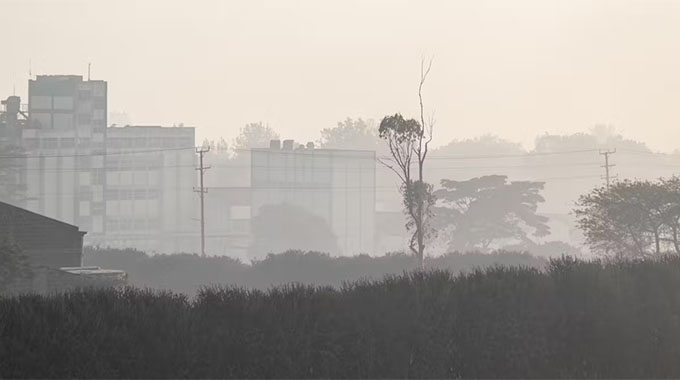African countries can simultaneously address climate change and improve public health by reducing air pollution. In many cases these actions also have other societal, economic, environment or health benefits.
Addressing these together is challenging because they are often the responsibility of different government departments. International climate change, health and development processes are often also separate discussions. However, for the first time, this year at COP28, a whole day will be devoted to discussing the linkages between climate change and health.
In September 2023, the African Union, United Nations Environment Programme, Climate and Clean Air Coalition and Stockholm Environment Institute released the technical report behind the Integrated Assessment of Air Pollution and Climate Change for Sustainable Development in Africa at the African Climate Summit in Nairobi, Kenya.
The report identified actions that could be taken across Africa in the short, medium and long term to simultaneously address climate change and improve public health. The actions reduce exposure to toxic air pollution and achieve other development priorities outlined in the African Union’s Agenda 2063 – the Africa We Want.
It builds on strong evidence that air pollution is a leading health risk; that the causes of air pollution strongly overlap with those of climate change; and that there are readily available policies and measures that simultaneously benefit each issue.
We served as co-chairs, steering committee members and coordinators of the integrated assessment. We brought together expertise in climate change, air pollution, public health, energy and agriculture. We joined over 100 authors from 17 African countries, and representatives from climate change ministries in 35 countries, to produce the report.
At its heart, the report assesses how climate actions could be implemented across Africa, and the benefits of doing so. It shows that, through 37 priority actions, hundreds of thousands of premature deaths could be avoided yearly due to improved air quality. This will also reduce Africa’s climate change contribution.
The report highlights five key reasons why these actions should be a priority:
1) adverse impact of air pollution on health across Africa
2) projected increases in emissions without intervention
3) multiple benefits from their implementation
4) reduced climate impacts in Africa
5) demonstrated implementation in Africa.
Air pollution is causing premature deaths
A lack of action to check key emission sources is robbing Africans of their health. Africa is responsible for about 4% of global carbon dioxide emissions causing climate change. The resultant air pollution has a strong impact on public health.
In 2019, air pollution caused 1.1 million premature deaths on the continent. Deaths mainly occurred from cooking with wood and charcoal (almost 700,000 premature deaths), and poor outdoor air quality (almost 400,000 premature deaths).
Air pollution particularly affects children. About 56% of global air pollution-linked infant deaths occur in Africa (383,000 infant deaths).
Sources of air pollution and emissions that cause climate change strongly overlap in Africa. They include fuels used for cooking, transportation, power generation and industries, agriculture, and waste management.
Inaction will worsen impact of climate change
Without action, Africa’s climate change contribution could triple by 2063. Health and climate change impacts could worsen because the impact of air pollution on health would more than double.
Without intervention, projected economic development, population and urbanisation would substantially increase fuel and electricity consumption and more than triple demand for transportation, food, and waste generation.
Five focal areas for 37 climate actions
Hundreds of thousands of premature deaths every year could be avoided through climate action in Africa. The assessment identified 37 specific actions across five areas that could check climate change and reduce air pollution. The five areas are
- transport
- residential
- energy and industry
- agriculture
- waste.
If all 37 actions were to be implemented, the most health-damaging air pollutant emissions could be reduced by 35% by 2030, and 80% by 2063. This would save the lives of 180,000 people who could have died prematurely yearly by 2030, and 800,000 by 2063. The most effective actions include:
- use of clean cooking fuels and technologies, especially transition to electricity as a primary source of cooking fuel
- emission controls for vehicles and increased use of electric vehicles
- renewable electricity deployment and energy efficiency measures in industry and businesses
- transforming management practices in agriculture and reduced open burning of crop residues
- best waste management practices, including avoiding open waste burning, and reducing waste generation.
The same 37 actions can reduce Africa’s contribution to climate change by 20% by 2030, and by 60% by 2063.
Climate action can check rainfall and temperature extremes
Climate change impacts that Africa will suffer are primarily determined by the future emission pathways of other continents that emit the majority of greenhouse gas emissions. It is therefore imperative for health protection in Africa that other regions rapidly reduce their greenhouse gas emissions.
However, the assessment shows that implementing the 37 actions could limit the negative effects of regional climate change on rainfall and temperature. This is especially in the Sahel region. This could substantially reduce land degradation and safeguard food production.
Scaling climate action
Action is being taken, but needs to be rapidly scaled up. The assessment emphasises that all the recommended actions are currently being implemented in Africa. Scaling up across Africa requires a well-funded and resourced continent-wide programme on clean air. The report recommends that such a programme should cover development and enforcement of national regulations, regional standards, and transparent monitoring of progress.
The African Ministerial Conference on the Environment has urged that the Clean Air Programme should be coordinated by strong country-led initiatives, cascaded to the regional economic communities and higher levels of policy.
COP28 can be used to accelerate the recommendations from the report for sustainable development in Africa. Additional commitment to implement and monitor these measures, and new finance and investment to achieve scale, would help ensure that climate change actions benefit people across the continent.
Brian Mantlana, climate change lead at the Council for Scientific and Industrial Research in South Africa, and Caroline Tagwireyi, consultant, Ampelos International Consultancy, Harare, Zimbabwe, contributed to this article.
Source : View Article
Author
-

Chris’s interest in air pollution and its impacts was fostered during a PhD in atmospheric chemistry at the University of Edinburgh and the Centre for Ecology and Hydrology. The focus was on the interpretation of data collected at the two UK monitoring supersites to demonstrate the linkage between specific impacts (e.g. on human health and vegetation) of atmospheric composition, and the conditions producing them. To achieve this a wide variety of tools and statistical techniques were used, which resulted in broader research interests in the application of statistical tools to investigate air pollution, and specifically how these tools can be integrated together to maximise the information derived from available data.



